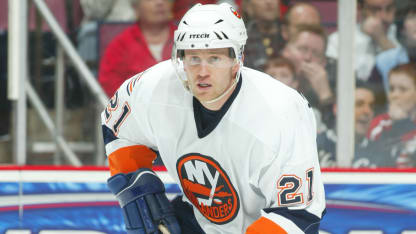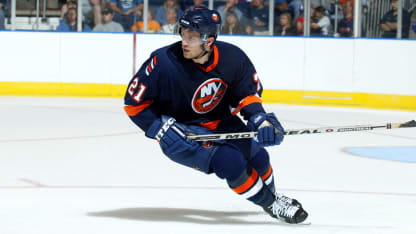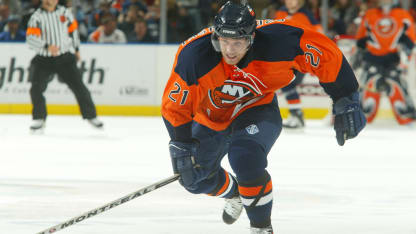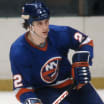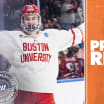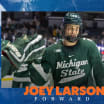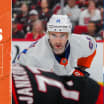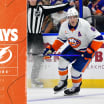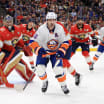The slow burn of Czerkawski's golf obsession was fine with him. Perhaps without realizing it, Czerkawski gave a little insight into the mind of a truly competitive athlete: He's actually really glad he didn't like golf when he was playing hockey.
"I lived on Long Island with beautiful courses all around. If I were in love with golf then, instead of focusing on just hockey and everything around hockey, I'd be thinking about my next tee time," Czerkawski said. "When you fall in love with something like I did, I mean, I was dreaming golf. Can you imagine before a hockey game, if I were thinking about my next round? No, I'm pretty happy I started it after."
When Czerkawski first hung up his skates and returned to Warsaw, he did some typical after hockey stuff - giving motivational speeches at corporate gatherings, investing in real estate, buying a chain of work out gyms, etc. But he also wanted to help out with Poland's national hockey program, so he took positions as the team leader, (think General Manager) the special advisor to the President, etc. He also started a foundation, Sports 7, which not only does charitable work, but also promotes hockey across the country by sponsoring skating competitions at schools, giving instruction, and hosting various hockey tournaments across the country. Czerkawski himself is there each year to present the Czerkawski Cup to the winners.
His most important role, however, may be just the inspiration he provides to kids who love the game. Parents and kids alike still ask him all the time how he made it to the NHL. A few years ago he answered them with a book called "My Life on the Ice." (You'll need to be fluent in Polish to read it though, as it hasn't been translated into English yet.)
ALUMNI CORNER: BRENDAN WITT
In the book, he tells the story of growing up playing hockey in communist Poland in the 1980's. He didn't have access to many things - one of them being satellite feeds of NHL games. So he couldn't even dream of making it to the NHL. He thought maybe if he was good enough, he'd play pro in Sweden or somewhere in Europe. Then, at the age of 19, he played very well in the European Junior Championships in Sweden in 1990, finishing third in scoring behind Pavel Bure and Jaromir Jagr, Not too shabby, eh? But it was a game against Germany that put him on the scouts' radar. Czerkawski scored seven goals and added an assist in an 8-7 victory over Germany. Not only did he have a hand in every goal, he scored in almost every possible way: even strength, power play, penalty kill, penalty shot, 5 on 3, 4 on 4… He was drafted by Bruins the next year and made his first NHL appearance at the end of the 1994 season.
Czerkawski was traded to the Islanders in 1997. When asked why he felt he played so well in New York, he said he was at the peak of career age-wise, but more than that, it was the way people treated him. Coach Mike Milbury gave him a real chance - playing him with Robert Reichel and sometimes with Ziggy Palffy. And Coach Butch Goring used him a lot also.
"I liked the surroundings," he said. "I had good friends on the ice and off the ice. And we had good fans who stuck with us through some bad times and ownership changes. They made me feel like an an important part of the team, and that helped a lot."
